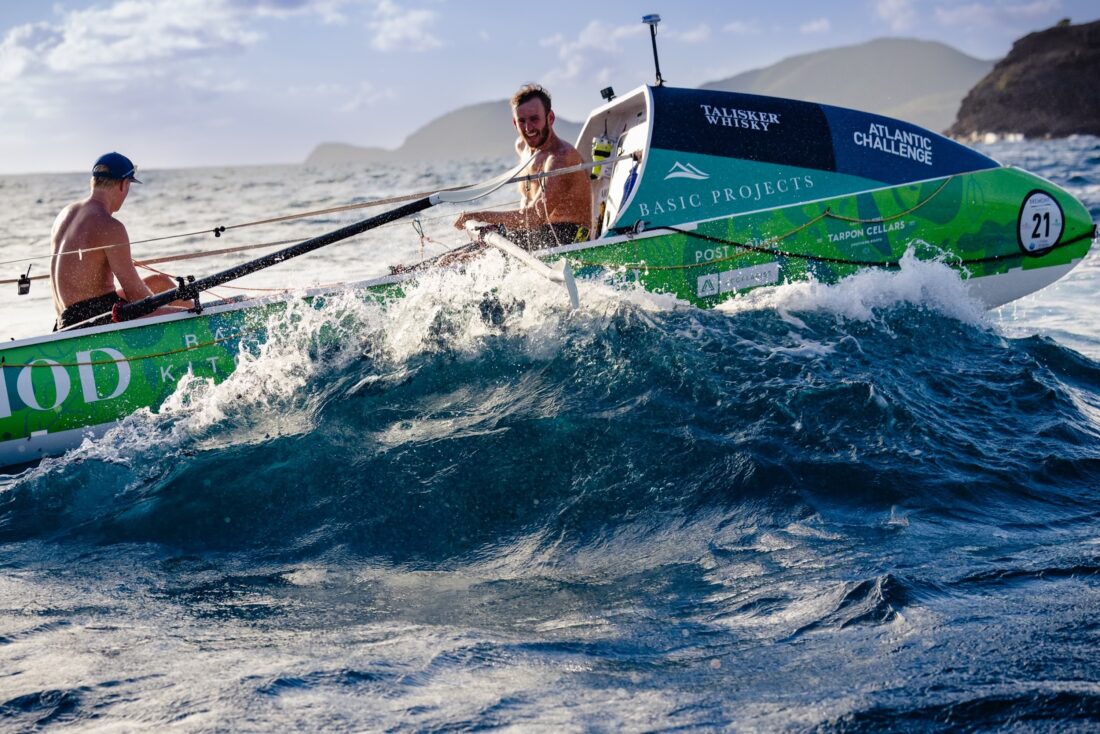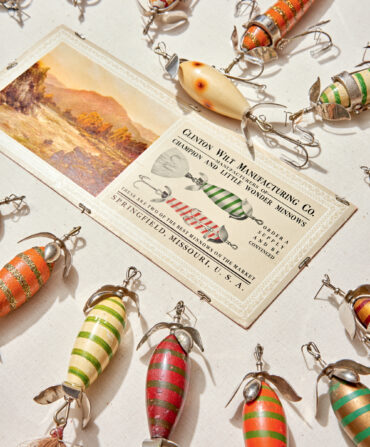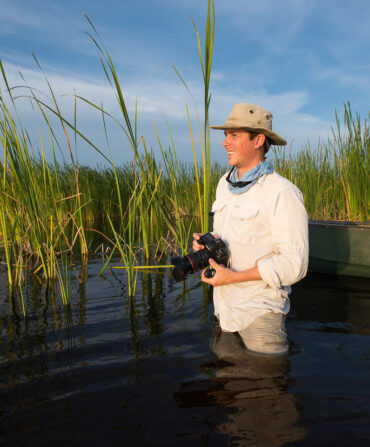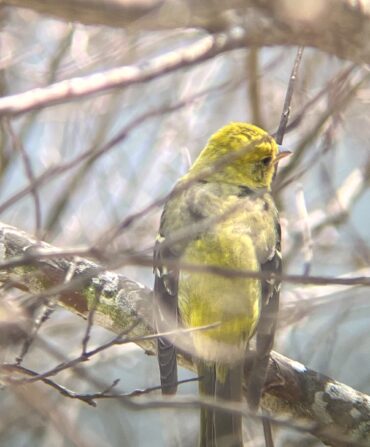How long does it take to row a boat more than three thousand miles over open ocean from the Canary Islands to Antigua? For Ben Towill and Charlie Layton, two Charleston, South Carolina, restaurant vets who completed that epic journey January 21, the answer is forty days.
Like another figure who famously took to the sea for that biblical length of time, Towill and Layton answered a calling. Cofounder of a Charleston restaurant group that operates Basic Kitchen, Post House, and Sullivan’s Fish Camp, Towill had long been intrigued with the Talisker Whisky Atlantic Challenge, an annual oceangoing competition billed as “the world’s toughest row.” Layton, a fellow Brit who is executive chef at the gourmet veggie–forward Basic Kitchen, harbored similar ambitions. When they discovered their shared fascination two years ago, daydreams begat an action plan.
Preparation started with the inconvenient fact that both were rookie rowers. A local trainer and kayak-style rowboats were deployed to level them up in the waters around Charleston until their specialized, twenty-five-foot ocean rowboat arrived from England last March. “Then we made three-day rows between Florida and home, 180 to 220 miles at a time,” Towill says. “It was summer, so we had all sorts of storms and lightning and other trials by fire.”
On December 12, the duo, now bearing the team name the Dreamboats (slogan: Two Blokes, One Ocean), pushed off from a dock in San Sebastian de La Gomera in the Canary Islands, off the coast of Morocco. Their rivals included nine other boats rowed by duos and thirty-three more boats in classes from solo to quintet, but the flotilla soon drifted apart on open water.
“After that, we spotted one other rowboat the whole trip, and chatted with them on the radio,” Towill says. “Otherwise, we saw only two sailboats and two container ships. You learn that you’re so small and the ocean is so big. You’re on your own.”
Steady progress depended on a strict routine of rowing in two-hour shifts, night and day. While one rowed, the other prepared food and attempted to sleep in the tiny berth incorporated into the bow. Despite being foodies, meals were basic, quick, and accommodating of Layton’s vegetarian diet—millet porridge with figs for breakfast, pouches of high-calorie Cajun-spiced couscous or Mexican bean casserole for other meals. And jar after jar of peanut butter. “We tried to replace the six thousand to eight thousand calories we were burning every day, but sometimes just couldn’t get it in,” Towill says.
Marine life sightings included dolphins, an orca pod, a spouting whale, and a great white shark that eyeballed them in passing. Then there was the marlin that snapped their rudder. “Marlins think a rowboat is a big fish,” says Towill, who jumped in the water with a roll of duct tape to fasten a spare rudder. “That was hairy.”
The hairiest moment, however, arrived when twenty-foot swells rolled the boat over, tossing both men into rough water. Fortunately, tethers kept them attached to the boat, which quickly righted itself. “We lost some stuff off the deck but were rowing again within thirty minutes,” Towill says. “Then we just looked at each other like, ‘Oh my God.’”
There were just as many instances of pure grace, including meteor showers, a moon so bright it charged the boat’s solar panels, and aquatic bioluminescence triggered by the stroke of oars. “Sometimes the sea is like a light show,” Towill says. “It becomes the small things that you really notice.”
Both men endured calluses and deep blisters from rowing, and aching backs and butts from sitting. The toll wasn’t all physical. After weeks of sleep deprivation, Towill started hallucinating a squirrel scampering about on deck, while Layton saw imaginary parking attendants. Both heard voices.
Finally, after forty days and eight hours, 3,300 miles, and a combined loss of sixty pounds, they neared the Antigua coast and the finish line at English Harbour. “When we arrived, the dock was full of friends and family,” Towill says. “It was incredible.”
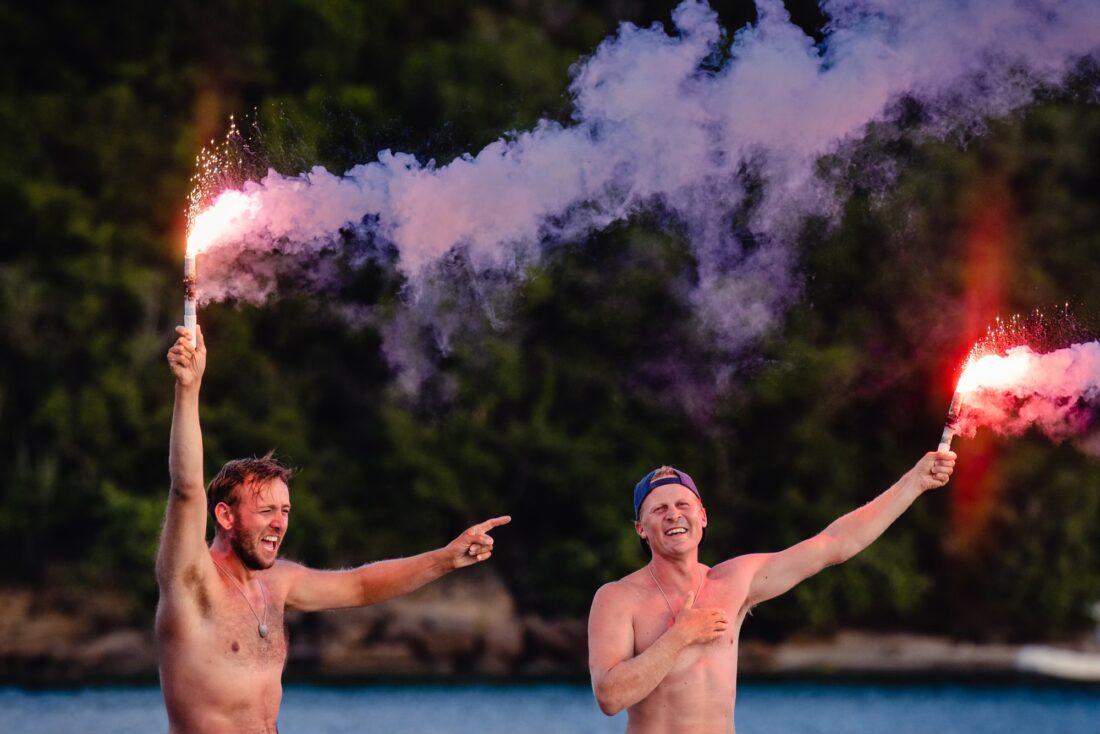
Amazingly, the Dreamboats were the first two-person team to finish. It’s apparent, though, that they’re equally proud of the sponsorship pledges—hitting $100,000—that the journey is allowing them to donate to the Green Heart Project, which fosters Charleston schoolyard gardens.
So what did a pair of chefs crave for their first solid food back on solid ground? “Charlie ate a big plate of rice and beans, and I had fish and chips,” reports Towill from Antiqua, where both are recuperating. “And we drank about eight piña coladas.”


